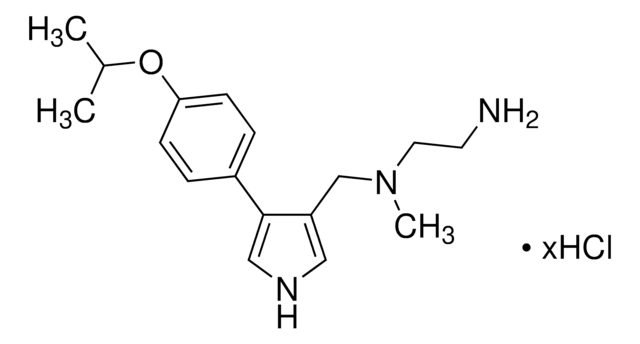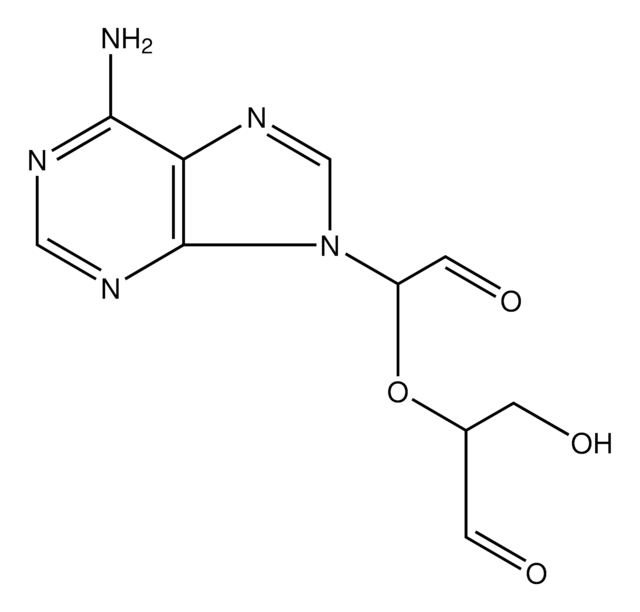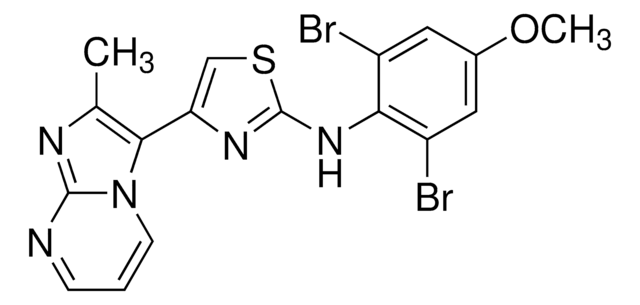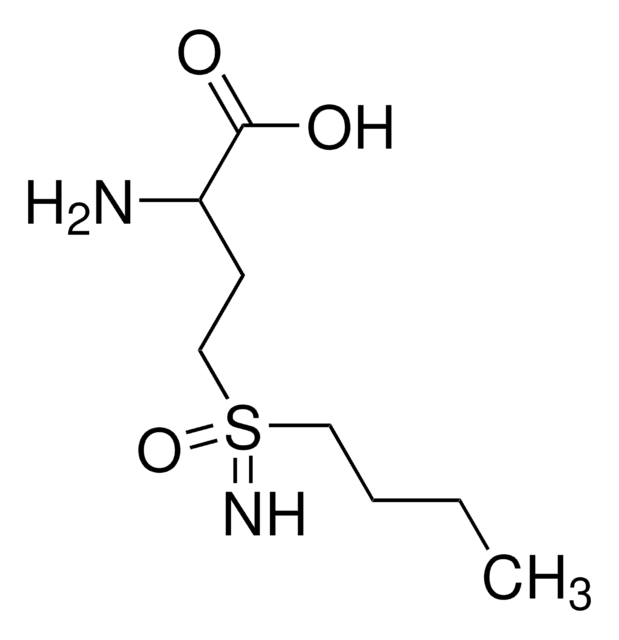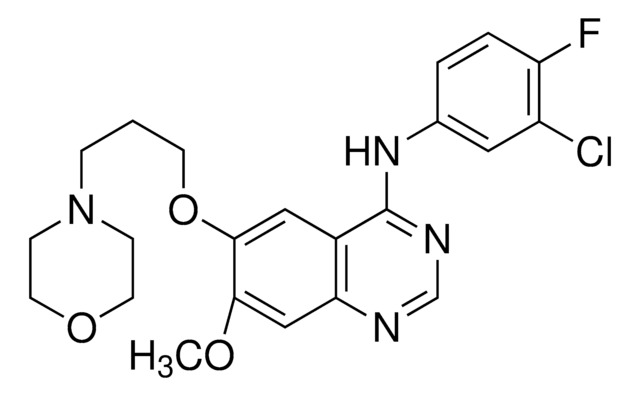SML1751
GSK591
≥97% (HPLC)
Sinonimo/i:
2-(Cyclobutylamino)-N-[(2S)-3-(3,4-dihydro-2(1H)-isoquinolinyl)-2-hydroxypropyl]-4-pyridinecarboxamide., EPZ015866, GSK 591, GSK3203591
About This Item
Prodotti consigliati
Livello qualitativo
Saggio
≥97% (HPLC)
Forma fisica
powder
Colore
white to beige
Solubilità
DMSO: 20 mg/mL, clear
Temperatura di conservazione
2-8°C
Stringa SMILE
O=C(NC[C@H](O)CN1CCC(C=CC=C2)=C2C1)C3=CC=NC(NC4CCC4)=C3
Azioni biochim/fisiol
SGC2096 is the negative control for the active probe, GSK-591. To request a sample of the negative control from the SGC, click here.
To learn about other SGC chemical probes for epigenetic targets, visit sigma.com/sgc
Caratteristiche e vantaggi
Altre note
Codice della classe di stoccaggio
11 - Combustible Solids
Classe di pericolosità dell'acqua (WGK)
WGK 3
Punto d’infiammabilità (°F)
Not applicable
Punto d’infiammabilità (°C)
Not applicable
Certificati d'analisi (COA)
Cerca il Certificati d'analisi (COA) digitando il numero di lotto/batch corrispondente. I numeri di lotto o di batch sono stampati sull'etichetta dei prodotti dopo la parola ‘Lotto’ o ‘Batch’.
Possiedi già questo prodotto?
I documenti relativi ai prodotti acquistati recentemente sono disponibili nell’Archivio dei documenti.
Il team dei nostri ricercatori vanta grande esperienza in tutte le aree della ricerca quali Life Science, scienza dei materiali, sintesi chimica, cromatografia, discipline analitiche, ecc..
Contatta l'Assistenza Tecnica.